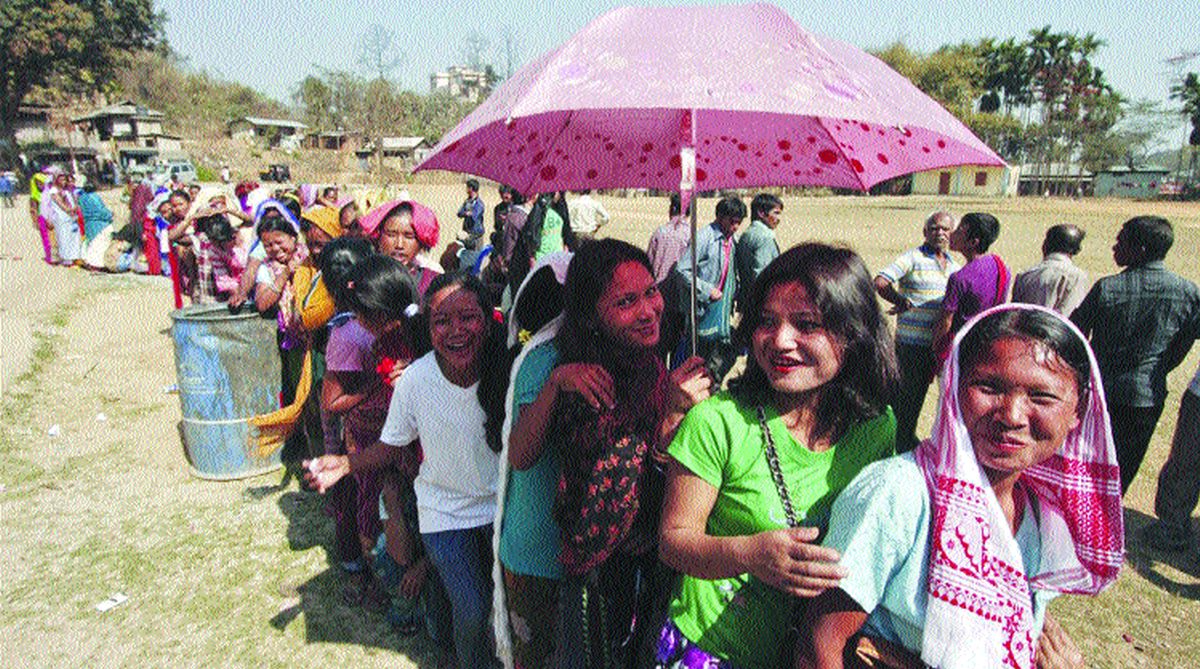Meghalaya has seen one bye-election after the other. First, it was Williamnagar that had to go to the polls since the candidate was murdered just before the 2018 Assembly elections. Next was the election in Ampati, a seat vacated by former chief minister Mukul Sangma as he had contested and won from two places. Last month an MLA resigned from his Assembly seat and the Congress Party to join the National Peoples’ Party, which is heading the coalition government in Meghalaya. So that seat will have to be filled by another election.
On 3 July, Agatha Sangma, sister of chief minister Conrad Sangma, resigned from her South Tura seat to make way for her brother who is not yet elected and continues to remain an MP of the Lok Sabha. Elections cost money and other resources. Who will defray these charges if not the tax payer?
When the MDA government came to power this year after a hectic election campaign, most people who were tired of Congress rule in Meghalaya breathed a sigh of relief. Barring a few, those in the present MDA ministry seem to mean well. They appear, at least in the eyes of many, to be responsive to public pleas.
On 3 July at the closure of the Behdeinkhlam festival in Jowai, the deputy CM, Prestone Tynsong and four of his cabinet colleagues left the venue and walked to where their vehicles were parked. Only the Governor’s entourage had the siren blaring when he left the festival venue. This is a rare gesture of wanting to connect with the people. Such gestures speak volumes about the intent of the MDA government, as one that wants to reach out and bring change.
But certain decisions of the NPP like bringing in disaffected MLAs from other political parties by rewarding them with lucrative posts, is a clear case of political inducement. Martin Danggo has resigned as MLA of Ranikor, ostensibly because the previous government, of which he was a part, never upgraded his constituency into a civil sub-division. Incidentally the distance between Mawkyrwat, the district headquarters, and Ranikor (C and RD block) is roughly about 44.9 kms and takes nearly two hours to commute.
If it takes the public a total of four hours to commute to and from the district headquarter at Mawkyrwat, which virtually means losing half a day, then a civil sub-division is called for; not just for Ranikor but for all blocks with similar distances from the district headquarters. The sanctioning of civil sub-divisions on a piece-meal basis and on the basis of politics is not what was envisaged by the Constitution. But whether the creation of these administrative units with the hugely misleading hyperbole — “taking the administration closer to the people” — is even possible is a question we need to engage with.
Most of those selected to the state civil service are urbanites with no idea of life in the outback of rural Meghalaya. It is the elected representatives that draw the attention of the government to the poor road communication between the district headquarters and far-flung villages. Many of those villages are still very poorly connected and we are about to observe half a century of statehood. This is enough indication that governance will continue to be served only to those that are able to physically come to the block headquarters.
I know from speaking to villagers that this is a wretched experience, more so when they are up against officers that are arrogant and lack the attitude of service. The Meghalaya Basin Development Authority and its manifold wings were created mainly to bridge this governance gap. Young professionals are picked up and appointed on a contract basis but are they from these villages? Are they not again the English-speaking, urban-bred elite with no understanding of rural development?
This is why the yardstick for measuring aptitude of field operatives needs to be more nuanced. You don’t want to appoint people who just wait for the day when they will return to the comfort of their home in Shillong. As it is, quite a number of state civil service officers have succeeded in pulling strings to remain out of rural postings. Those without clout, mostly male officers, tend to do rural postings. But even they are reluctant to serve in some of the remote outposts of the Garo Hills, for instance.
Meghalaya’s progress to date is mainly because some IAS officers have served their tenures sincerely. Quite a few have been outstanding in reaching out to people and trying to comprehend what ails their daily existence. Recently, pictures of the deputy commissioner of the West Garo Hills eating a midday meal with school children and also wading over rice fields to see what farmers actually go through are what real administration is about. I can’t imagine English-speaking, stylishly decked officers with no experience of village life ever succeeding in public administration.
Hence, the idea of creating civil sub-divisions can also be self-defeating because while the staff will be recruited and paid salaries, their ability to meet the aspirations of the people of that administrative unit will continue to remain unsuccessful unless new modes of governance are tried out. The purpose of every government is to innovate better ways of reaching out to the unreachable.
Coming back to Martin Danggo, he was until the other day a Congressman, who like his other colleagues is uncomfortable about being in the Opposition. The Congress is a spent force in Ranikor after Danggo’s exit. In Meghalaya, people don’t understand ideology; they follow individual politicians for different reasons. Danggo’s closest rival is from the United Democratic Party who came in a close second in the February 2018 election and lost by 455 votes only.
The rub is that the UDP and NPP are members of the same coalition. The UDP candidate does not want to not cede any ground to Danggo despite UDP being an alliance partner of the MDA. What happens after the Ranikor election will be interesting. If Danggo loses, the NPP would have lost its opportunity to shore up its numbers. If he wins, the UDP, I suspect, would continue to be part of the MDA coalition.
Danggo is quite sure of winning back his seat, but even if he doesn’t, he is well looked after. Appointed co-chairman of the State Planning Board, the post comes with pay and perks and perhaps cabinet minister status too. This political chicanery is what has put Meghalaya in a very unfavourable position as far as the Human Development Indices is concerned. What is unfortunate is that the NPP-led MDA government is allowing such a game to be played purely for political reasons. Don’t they know that the state is above party
politics?
Since March this year, when the MDA government took over the reins of governance, barring education, not much has been heard on policy formulation in other areas like health, tourism, agriculture, horticulture, mining et al. Those in government perhaps have no time to think of these fundamental issues since their time is used up in aligning and realigning political forces.
And speaking about creating civil sub divisions, which is Danggo’s raison d’être for quitting the Assembly, let it be made clear that this should not be an end in itself. It is a means to an end and requires several areas of convergence of varying departments before people can benefit from a civil sub-division.
Also the MDA government needs to take cognisance of the fact that repeated elections cost money funded by the public exchequer; not the political party’s coffers. The Ranikor example violates norms of democracy.
The writer is Editor of the Shillong Times and can be contacted at patricia.mukhim@gmail.com











